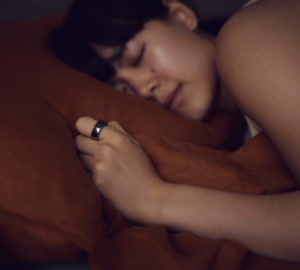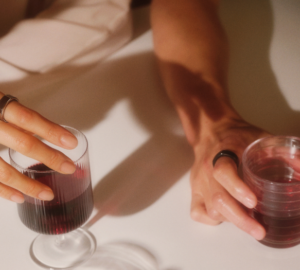What you do during the day—from the moment you wake up—has a profound impact on how well you sleep at night. “Your sleep is a mirror of your day,” says Johanna Still, head of insight messages at Oura.
From soaking in morning sunlight to sticking to a regular eating schedule, these 9 daytime habits can help you unlock deeper, more restful sleep.
The Science Behind Daytime Behavior and Sleep
Your body operates as a complex system, responding to internal and external cues like light, food, stress, and activity. These signals influence critical processes—such as your circadian rhythm, digestion, and nervous system—which, in turn, impact your sleep.
“Our bodies have a built-in clock directed by the signals sent through our daytime activities,” explains Still.
Some signals prepare your body to be alert and awake, while others prime it for rest. By adopting habits aligned with these cues, you can regulate your sleep-wake cycle and build sleep pressure—the natural drive for sleep—making it easier to fall and stay asleep.
“When people struggle with sleep, they may feel stressed. But you can’t force yourself to fall asleep,” says Still. “In fact, this added pressure can actually make you sleep worse.”
Instead of trying to force yourself into sleep, the key is to naturally encourage sleepiness in the evening by focusing on what you do have agency over during the day—including these 9 habits.
9 Daytime Habits for Better Sleep
1. Break Up Sedentary Time
“Most people spend a lot of time sitting, whether it’s at a desk, in meetings, or on the couch,” says Sofia Strömmer, PhD, senior behavioral scientist at Oura. “However, prolonged sedentary behavior throughout the day can harm your sleep.”
When you sit for too long, your body doesn’t build up the necessary sleep pressure (your body’s natural drive for sleep). Adding activity into your day builds your body’s sleep drive, helping you drift off more easily.
A review of studies found that people who are more active sleep better. According to one study, aiming for at least 30 minutes of movement per day had the best results, helping participants fall asleep faster and sleep an average of 15 minutes longer. “This might sound like a lot if you’re currently sedentary, but think of it as three 10-minute movement breaks sprinkled throughout your day,” says Strömmer.
| Member Tip: Enable inactivity alerts to receive a friendly reminder to “stretch your legs” after 50 consecutive minutes of inactivity. |
2. Incorporate Restorative Breaks
Staying active throughout the day is essential for better sleep, but overdoing it can backfire. Keeping your stress response constantly activated can disrupt your ability to build sleep pressure in a healthy way, leaving you feeling burned out rather than rested.
Instead, aim for a balance: brief periods of activity or stress (think of them as sprints) followed by restorative breaks. These intentional pauses help regulate your nervous system, improve stress management, and ultimately promote more restful sleep.
| Member Tip: Track your Restorative Time in the Oura App by tapping your Daytime Stress graph (under “Restored”). |
3. Let Your Brain Calm Down Before Bedtime
After a busy day, you might turn to a tough workout or a thrilling movie to unwind. While these activities can relieve stress, they may leave your mind too stimulated for sleep. An active brain isn’t ready to shut down for bed.
Taking intentional moments throughout the day to calm your mind can make a big difference in sleep quality. The good news? Relaxation doesn’t mean sitting in silence right before bedtime. “If your mind is in overdrive, it can be really hard to just be quiet or practice mindfulness,” explains Strömmer. Opt for one of these research-backed wind-down routines to help your body and mind relax during the day and in the evening.
| Member Tip: Check out Oura’s Explore content to access sleep stories, guided meditations, and breathing exercises to help your brain relax. |
4. Reserve Your Bedroom For Sleep
Your brain naturally forms associations between places and behaviors, often without you realizing it. For instance, when you’re in the car, your mind shifts into “commute” mode.
The same principle applies to your bed. If you frequently use it for activities like working, watching TV, or scrolling through your phone, your brain may struggle to associate your bed with rest and sleep.
If working in your bedroom is unavoidable, try to create boundaries. At the very least, put away your laptop and work materials when you’re done for the day. Working in the evening can keep your brain in an activated state, which interferes with your ability to relax and fall asleep.
By reserving your bed exclusively for sleep (and maybe the occasional nap), you reinforce its association with rest, making it easier for your brain to wind down at night and support a healthier sleep cycle.
5. Eat Regular Meals
Eating a heavy meal in the evening can interfere with your sleep by keeping your digestive system active, raising your body temperature, and inhibiting melatonin production. To avoid these disruptions, it’s best to finish eating at least two hours before bedtime.
However, it’s not just about avoiding late-night meals—what and when you eat throughout the day also play a key role in sleep quality. Skipping breakfast in favor of a caffeine boost, for example, can throw off your body’s internal clock. Breaking your overnight fast with a nutritious breakfast helps signal to your body that it’s daytime, supporting your circadian rhythm.
Breakfast triggers the release of insulin, which helps reset the liver’s internal clock. Many researchers believe the liver plays a central role in regulating your body’s overall circadian system.
Keep in mind that individual factors, like your chronotype (whether you’re naturally a morning or evening person), can affect how meal timing impacts your sleep. Experiment with consistent meal schedules to see what works best for you.
READ MORE: How Late-Night Eating Impacts Your Sleep
| Member Tip: Learn how your eating patterns affect your sleep with the Oura Labs Meals feature. This feature analyzes the timing of your meals in relation to your sleep quality, helping you optimize your rest. |
 6. Get Morning Light Exposure
6. Get Morning Light Exposure
Light exposure is one of the most powerful drivers of your circadian rhythm. When you wake up, aim to make your environment as bright as possible—even with artificial lighting if needed. For added benefits, step outside to soak up natural sunlight and fresh air.
Morning light cues your body that it’s time to be awake, helping to reset your internal clock and trigger a healthy spike in cortisol (known as the cortisol awakening response). This process jumpstarts your day and begins building the sleep pressure you’ll need for restful sleep later.
Equally important is limiting light exposure in the evening. As bedtime approaches, dim your lights and minimize screen time, particularly blue light from phones and computers, which can suppress melatonin production. If you need screen time to relax, lower the brightness and activate “Night Mode” to signal your brain that it’s time to wind down.
READ MORE: Everything You Need to Know About Melatonin
7. Embrace Challenges
Many people who struggle with sleep feel like they have pent-up energy that can manifest as racing thoughts or restlessness. Doing something hard, like a tough workout, a crossword puzzle, or a cold shower, can act as hormetic stressor—short bursts of stress that activate your body’s adaptive mechanisms.
These short bursts of stress spike cortisol and adrenaline, activating the sympathetic nervous system (fight-or-flight). But this activation is quickly counteracted by your parasympathetic response (rest-and-digest). This nervous system shift helps you burn off excess energy and feel mentally and physically ready for bed.
READ MORE: Chill Out: 8 Science-Backed Benefits of Cold Exposure Therapy
8. Cut Back on Caffeine After Noon
Caffeine has a half-life of 5 to 7 hours, which means that after 7 hours, half of the total caffeine content is still in your bloodstream. While this may not sound like a lot, if you’re sensitive to caffeine, it may disrupt your sleep.
| Member Tip: Oura members who tag “late caffeine” see an average 2% decrease in light sleep. Tag it and see how it affects your sleep. |
9. Keep Your Wake Up Time Consistent
If you’re struggling to sleep at night, it might be time to set a strict morning alarm—yes, even on weekends. Sleeping in later than usual on Saturday can shift your circadian rhythm, making it harder to feel tired at your usual bedtime.
While this habit can be tough to break, consistency is key. Sticking to the same wake-up time every day helps your body establish a predictable rhythm, making it easier to fall asleep and wake up naturally. Be patient—readjusting your sleep schedule can take days or even weeks, but the benefits are worth it.
| Member Tip: Sleep regularity is a contributor to your Readiness Score. Tap on the sleep regularity trend chart to see a graph of your sleep timing, consisting of your time in bed, time asleep, and any awake time interruptions during the night. |
Live Well, Sleep Well
It’s important to remember that sleep issues are a normal part of life, and everyone experiences them. You can’t force yourself to sleep. The key is to actually make the most of your day—break up sedentary time, take restorative breaks, and opt for more regular meals.
“By the time the evening rolls around, your goal should be to feel sleepy, with your heart rate lowering, your muscles relaxed, and your mind calm,” Still says. “Your brain should be free from overdrive, and your body should feel ready to rest.”
RELATED: Get Back on Track: 5 Ways to Sleep Better Tonight
About the Oura Experts
Johanna Still is the Head of Insight Messages at Oura, and leads the Insights team. She joined Oura in Autumn 2017 to help launch the Oura Ring Gen2, after which she moved to product development. Johanna holds an M.Sc. in Information Technology Business from the University of Oulu. Prior to Oura she has worked in several roles in the IT industry, academia and marketing.
Sofia Strömmer, PhD, is a behavioral scientist at Oura. She is from Finland, but lived in the UK for 16 years before moving back to join Oura. She is a Chartered Psychologist and has a PhD in Psychology focusing on the motivational determinants of exercise behavior. Her area of expertise is in motivational aspects of health behavior change and how motivation for health behaviors arises and is maintained. Before joining Oura, Sofia worked as a researcher at the Medical Research Council at the University of Southampton.












